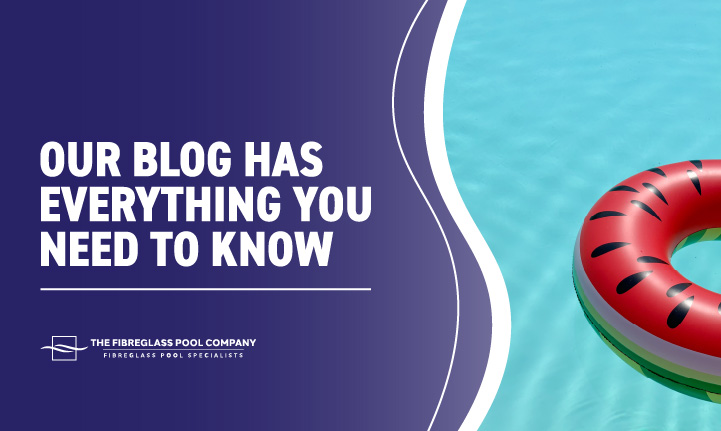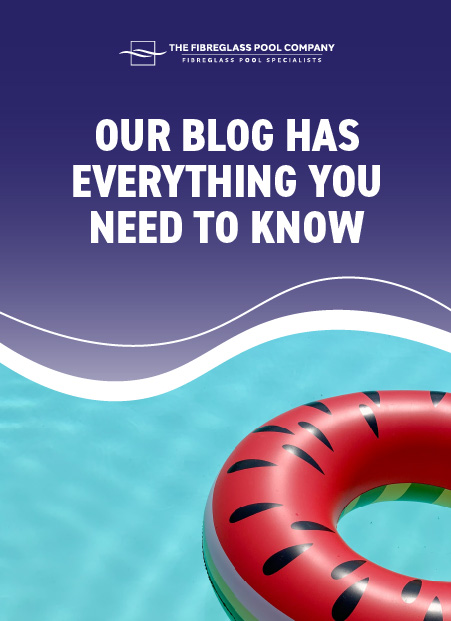Imagine dipping into your pool no matter the season – pure bliss, right? While the thought of year-round pool enjoyment is tempting, the costs associated with heating can deter homeowners. But here's the good news: you can have a warm pool, even in the dead of winter, without emptying your wallet. This blog dives into cost-effective methods for heating your pool all year round. We’ll explore various strategies that ensure your pool remains a pleasant temperature, from understanding your heating needs to DIY solutions. By the end of this post, you'll have a comprehensive guide to keeping your pool warm without overspending.
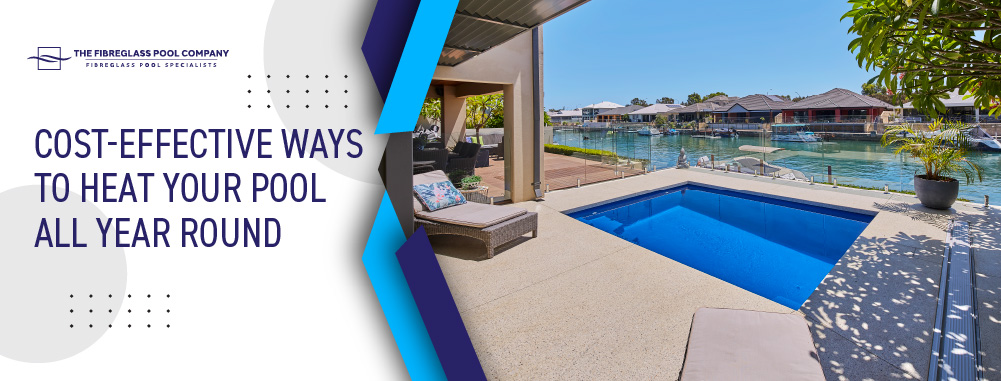
Understanding Your Pool Heating Needs
Factors Affecting Heating Requirements
Before jumping into the best heating solutions, it’s essential to understand what influences your pool’s heating needs. Factors like pool size, location, and usage frequency play significant roles. Larger pools require more energy to heat, while pools situated in windy or shaded areas lose heat faster. Consider how often you use the pool and the desired water temperature to determine your heating requirements.
Calculating Optimal Heating Capacity
Knowing your specific heating requirements helps you choose the most efficient heating solution. The kilojoule (kJ) is a standard measure used to calculate heating capacity. To find the optimal kJ for your pool, consider factors such as your pool’s surface area and the difference between your pool water temperature and the average air temperature. Various online calculators can help simplify this, ensuring you get it right.
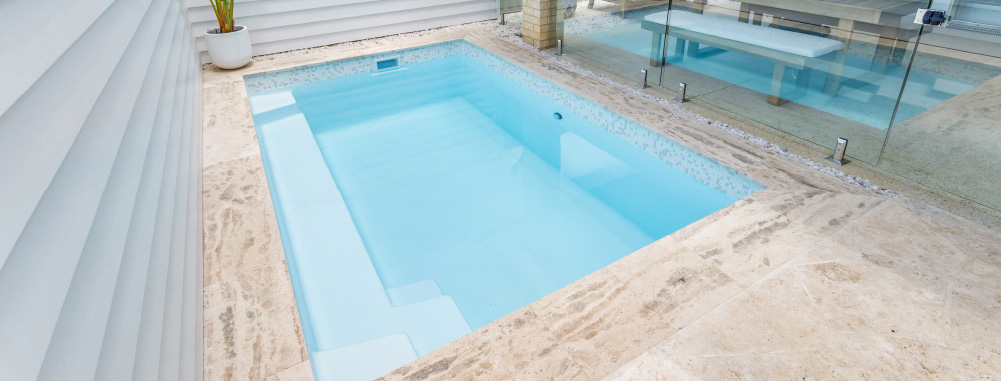
Solar Pool Heating
How Solar Panels Work
Solar pool heating systems harness the sun’s energy to warm your pool water. Solar panels installed on your roof or a sunny area on your property collect and convert sunlight into heat. Water is pumped through these panels, heated by the sun, and then returned to your pool, creating a continuous cycle of warmth.
Cost-Benefit Analysis
Solar pool heating systems are an environmentally friendly and cost-effective option in the long term. While the initial installation costs can be high, the ongoing operational expenses are minimal since the energy source – the sun – is free. Over time, this investment pays off, making solar heating a practical choice for many homeowners.
Installation Considerations
When considering solar pool heating, take into account the amount of sunlight your property receives and the available installation space. It’s crucial to position the solar panels where they receive maximum sunlight exposure. Professional installation is recommended to ensure optimal performance and durability.
Heat Pumps
Efficient Heating with Heat Pumps
Heat pumps are another effective way to heat your pool. They function by extracting heat from the air and transferring it to the pool water. This method is energy-efficient as it uses electricity primarily to operate the pump and fan rather than to generate heat.
Comparison with Other Methods
Compared to gas heaters, heat pumps are more energy-efficient and have lower operational costs. While they may take longer to heat the pool initially, their consistent and reliable performance makes them ideal for regular use. They also have a longer lifespan, adding to their cost-effectiveness.
Ideal Usage Scenarios
Heat pumps work best in moderate climates, where the air temperature remains consistently above 10°C. In colder regions, their efficiency decreases, and alternative or supplementary heating solutions may be required. However, for many homeowners, a heat pump provides a balanced mix of efficiency and affordability.
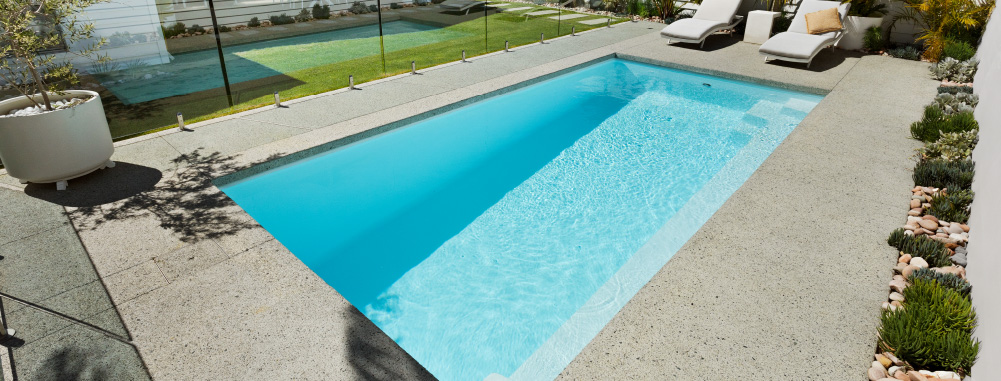
Pool Covers and Blankets
Types of Pool Covers
Pool covers are essential for maintaining your pool’s temperature. Different types include solar blankets, thermal blankets, and automatic covers. Solar blankets are designed to capture and retain heat from the sun, while thermal blankets provide insulation to prevent heat loss.
Effectiveness in Retaining Heat
Using a pool cover is one of the simplest yet most effective ways to reduce heat loss. Pool covers can retain up to 95% of a pool’s heat, significantly reducing the energy required to maintain a comfortable temperature. This results in lower heating costs and improved energy efficiency.
Additional Benefits
Beyond heat retention, pool covers help reduce water evaporation and chemical use. They keep debris out, maintaining cleaner water and reducing maintenance efforts. By using a pool cover, you’re not only saving on heating costs but also contributing to overall pool upkeep savings.
DIY Solutions
Creative Low-Cost Ideas
For those looking for budget-friendly options, DIY solutions can offer significant savings. One simple method is to use black polyethylene sheets, which absorb sunlight and transfer heat to the pool water. Another idea is to create a solar heating coil using black garden hoses, which can be set up to circulate and warm the water.
Safety and Effectiveness Considerations
While DIY solutions can be cost-effective, safety should always be a priority. Ensure that any materials used are safe for pool use and won’t introduce harmful chemicals into the water. Additionally, regularly monitor the effectiveness of these solutions to maintain consistent water temperatures.
Technologies for Automation and Energy Efficiency
Overview of Smart Pool Heating Systems
Advancements in technology have introduced smart pool heating systems that optimise energy use and enhance convenience. These systems can be controlled remotely via smartphone apps, allowing you to adjust settings and monitor performance from anywhere.
Advantages of Automation
Automation offers several benefits, including precise temperature control and scheduling. By programming your heating system to operate during off-peak hours, you can take advantage of lower energy rates. Smart systems also provide real-time data, helping you track energy consumption and identify areas for improvement.
Integrating Automation for Savings
Integrating automation with your pool heating system maximises cost savings. Smart thermostats and energy-efficient pumps work together to maintain optimal temperatures while minimising energy use. This combination ensures your pool remains comfortable year-round without incurring excessive costs.
Year-round pool enjoyment doesn’t have to come with a hefty price tag. By understanding your heating needs and exploring various cost-effective solutions, you can maintain a warm and inviting pool throughout the year. From solar panels and heat pumps to pool covers and DIY ideas, there are numerous ways to achieve this goal.
Investing in smart technologies and automation further enhances these savings, providing convenience and efficiency. Explore these options and find the best fit for your home, ensuring endless swimming pleasure without the financial strain.
Imagine dipping into your pool no matter the season – pure bliss, right? While the thought of year-round pool enjoyment is tempting, the costs associated with heating can deter homeowners. But here's the good news: you can have a warm pool, even in the dead of winter, without emptying your wallet. This blog dives into cost-effective methods for heating your pool all year round. We’ll explore various strategies that ensure your pool remains a pleasant temperature, from understanding your heating needs to DIY solutions. By the end of this post, you'll have a comprehensive guide to keeping your pool warm without overspending.
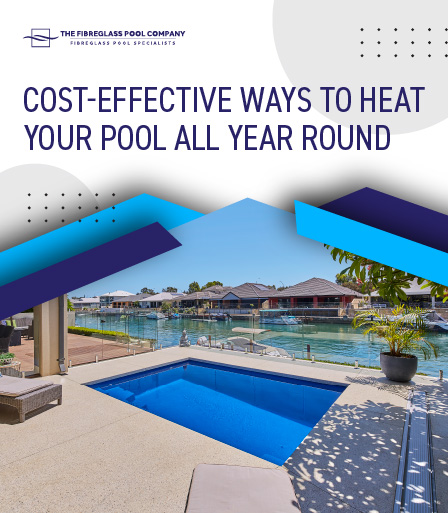
Understanding Your Pool Heating Needs
Factors Affecting Heating Requirements
Before jumping into the best heating solutions, it’s essential to understand what influences your pool’s heating needs. Factors like pool size, location, and usage frequency play significant roles. Larger pools require more energy to heat, while pools situated in windy or shaded areas lose heat faster. Consider how often you use the pool and the desired water temperature to determine your heating requirements.
Calculating Optimal Heating Capacity
Knowing your specific heating requirements helps you choose the most efficient heating solution. The kilojoule (kJ) is a standard measure used to calculate heating capacity. To find the optimal kJ for your pool, consider factors such as your pool’s surface area and the difference between your pool water temperature and the average air temperature. Various online calculators can help simplify this, ensuring you get it right.
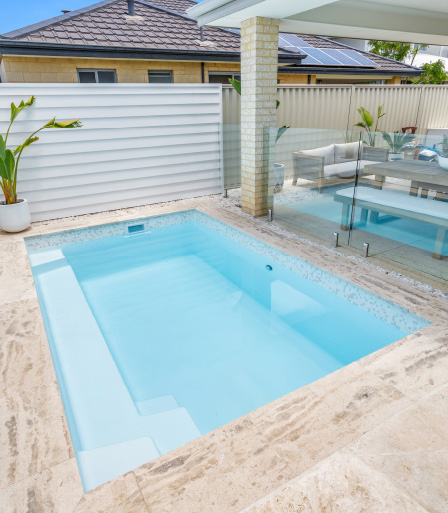
Solar Pool Heating
How Solar Panels Work
Solar pool heating systems harness the sun’s energy to warm your pool water. Solar panels installed on your roof or a sunny area on your property collect and convert sunlight into heat. Water is pumped through these panels, heated by the sun, and then returned to your pool, creating a continuous cycle of warmth.
Cost-Benefit Analysis
Solar pool heating systems are an environmentally friendly and cost-effective option in the long term. While the initial installation costs can be high, the ongoing operational expenses are minimal since the energy source – the sun – is free. Over time, this investment pays off, making solar heating a practical choice for many homeowners.
Installation Considerations
When considering solar pool heating, take into account the amount of sunlight your property receives and the available installation space. It’s crucial to position the solar panels where they receive maximum sunlight exposure. Professional installation is recommended to ensure optimal performance and durability.
Heat Pumps
Efficient Heating with Heat Pumps
Heat pumps are another effective way to heat your pool. They function by extracting heat from the air and transferring it to the pool water. This method is energy-efficient as it uses electricity primarily to operate the pump and fan rather than to generate heat.
Comparison with Other Methods
Compared to gas heaters, heat pumps are more energy-efficient and have lower operational costs. While they may take longer to heat the pool initially, their consistent and reliable performance makes them ideal for regular use. They also have a longer lifespan, adding to their cost-effectiveness.
Ideal Usage Scenarios
Heat pumps work best in moderate climates, where the air temperature remains consistently above 10°C. In colder regions, their efficiency decreases, and alternative or supplementary heating solutions may be required. However, for many homeowners, a heat pump provides a balanced mix of efficiency and affordability.
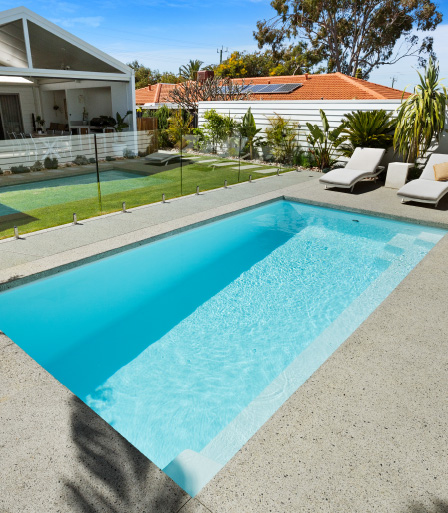
Pool Covers and Blankets
Types of Pool Covers
Pool covers are essential for maintaining your pool’s temperature. Different types include solar blankets, thermal blankets, and automatic covers. Solar blankets are designed to capture and retain heat from the sun, while thermal blankets provide insulation to prevent heat loss.
Effectiveness in Retaining Heat
Using a pool cover is one of the simplest yet most effective ways to reduce heat loss. Pool covers can retain up to 95% of a pool’s heat, significantly reducing the energy required to maintain a comfortable temperature. This results in lower heating costs and improved energy efficiency.
Additional Benefits
Beyond heat retention, pool covers help reduce water evaporation and chemical use. They keep debris out, maintaining cleaner water and reducing maintenance efforts. By using a pool cover, you’re not only saving on heating costs but also contributing to overall pool upkeep savings.
DIY Solutions
Creative Low-Cost Ideas
For those looking for budget-friendly options, DIY solutions can offer significant savings. One simple method is to use black polyethylene sheets, which absorb sunlight and transfer heat to the pool water. Another idea is to create a solar heating coil using black garden hoses, which can be set up to circulate and warm the water.
Safety and Effectiveness Considerations
While DIY solutions can be cost-effective, safety should always be a priority. Ensure that any materials used are safe for pool use and won’t introduce harmful chemicals into the water. Additionally, regularly monitor the effectiveness of these solutions to maintain consistent water temperatures.
Technologies for Automation and Energy Efficiency
Overview of Smart Pool Heating Systems
Advancements in technology have introduced smart pool heating systems that optimise energy use and enhance convenience. These systems can be controlled remotely via smartphone apps, allowing you to adjust settings and monitor performance from anywhere.
Advantages of Automation
Automation offers several benefits, including precise temperature control and scheduling. By programming your heating system to operate during off-peak hours, you can take advantage of lower energy rates. Smart systems also provide real-time data, helping you track energy consumption and identify areas for improvement.
Integrating Automation for Savings
Integrating automation with your pool heating system maximises cost savings. Smart thermostats and energy-efficient pumps work together to maintain optimal temperatures while minimising energy use. This combination ensures your pool remains comfortable year-round without incurring excessive costs.
Year-round pool enjoyment doesn’t have to come with a hefty price tag. By understanding your heating needs and exploring various cost-effective solutions, you can maintain a warm and inviting pool throughout the year. From solar panels and heat pumps to pool covers and DIY ideas, there are numerous ways to achieve this goal.
Investing in smart technologies and automation further enhances these savings, providing convenience and efficiency. Explore these options and find the best fit for your home, ensuring endless swimming pleasure without the financial strain.

